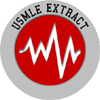Belimumab (trade name Benlysta, previously known as LymphoStat-B): is a human monoclonal antibody that inhibits B-cell activating factor (BAFF).
Belimumab is approved in the United States, Canada and Europe for treatment of SLE. However, the major phase III trials excluded the more severe cases of SLE with kidney and brain damage, so
its effectiveness has not been demonstrated in those cases. A Phase III study for SLE patients with kidney disease is now recruiting.
Uses
1. Systemic lupus erythematosus
While belimumab appears safe in systemic lupus erythematosis, the magnitude of benefit is small. Black/African American patients did not show a benefit. The most severe cases, with kidney and central nervous system involvement, were excluded from the trials. The efficacy and safety of belimumab was demonstrated in 2 Phase III randomized, controlled studies, BLISS-52 and BLISS-76.
The 2 studies had a total of 1,684 patients, with scores of ?6 on the SELENA-SLEDAI assessment. They were divided into a placebo and 2 dosage groups of belimumab, in addition to standard therapy. The primary end point was a reduction of ?4 on the SELENA-SLEDAI assessment, and several other factors, at 52 weeks. Belimumab significantly improved the response rate, reduced disease activity and severe flares, and was well tolerated. 58% had SELENA-SLEDAI scores reduced by ?4 points during 52 weeks with belimumab 10 mg/kg compared to 46% with placebo.
2. Rheumatoid arthritis
In phase II clinical trials for rheumatoid arthritis. belimumab was not effective.
3. Sjogren’s Syndrome
Belimumab has completed phase II trials for Sjogren’s Syndrome.
Side Effects
Common adverse effects reported with belimumab include nausea, diarrhea, fever, as well as hypersensitivity and infusion-site reactions (severe in 0.9% of patients). It is suggested that patients be treated with an antihistamine prior to a belimumab infusion. A greater number of serious infections and deaths were reported in patients treated with belimumab than in those treated with placebo.Infections are due to the immunosuppressant properties of the drug.
Mechanism of action
B-cell activating factor (BAFF), also called B-lymphocyte stimulator (BLyS), is required for the development and survival of B cells. In SLE, BAFF is overexpressed. Researchers theorize that BAFF overexpression causes autoimmune B cell proliferation and survival, which causes SLE.
Belimumab is a human antibody that binds to BAFF, preventing BAFF from binding to B cells. Without the survival factor BAFF, B cells commit suicide, and no longer contribute to the autoimmune damage of SLE.
BAFF is secreted by a variety of cells: monocytes and macrophages, bone marrow stromal cells, astrocytes, synoviocytes during rheumatoid arthritis, salivary epithelial cells during Sjogren's syndrome, astrocytes in certain glioblastomas.
BAFF interacts with three membrane receptors on B lymphocytes:
• BAFF-R (BAFF receptor)
• BCMA (B cell maturation antigen)
• TACI (transmembrane activator and calcium modulator and cyclophylin ligand interactor)
When BAFF binds to BAFF-R and BCMA on B cells, levels of Bcl-2, a survival factor, are increased. When all three BAFF receptors are stimulated, levels of NF kappa B, which contributes to cell proliferation and differentiation, are increased in the nucleus. Another B-cell activator like BAFF is APRIL (a proliferation-inducing ligand), [16] but APRIL only activates BCMA and TACI, not BAFF-R.
Belimumab reduces the number of circulating B cells, but anti-CD20 monoclonal antibodies reduce the number even more. It is possible that belimumab binds primarily to circulating soluble BAFF, therefore not inducing antibody-dependent cellular cytotoxicity that could be expected from this IgG1-type antibody.
